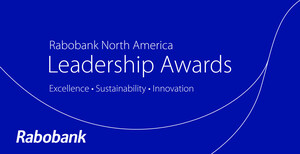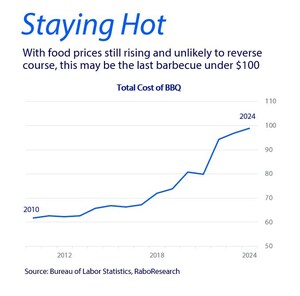Rabobank Report: "Raj-accino"- The Rise Of Coffee Culture In India
NEW YORK, Nov. 20, 2012 /PRNewswire/ -- Rabobank has published a new research report on the rise of the coffee culture in India, due to the efforts of a few specialist coffee chains and instant coffee players.
In a new report titled "Raj-accino," Rabobank's Food & Agribusiness Research and Advisory group says that coffee drinking has spread across the country and consumption has doubled. Specialist coffee shop chains, which have established themselves as a 'hangout' for urban youth, are projected to reach 4,000 in numbers by 2015 (21% CAGR). This growth is a result of favorable demographics, rising income levels, rise of mid-sized cities and high population density. High real estate costs, manpower attrition and difficulties in managing the supply chain will continue to be the key challenges.
Although specialist coffee chains' contribution to India's total coffee consumption by volume may not be significant, these coffee shops have added more visibility to the coffee culture. The first specialist coffee shop by Cafe Coffee Day opened up in 1996, and the company has since grown to a market leading position, with 1,350 coffee shops spread across India. At present, there are around 2,100 specialist coffee shops in India, and given that there are multiple international coffee shop chains trying to expand their base in this important market, consumers are likely to have even more options within the next three years.
For a burgeoning segment of the Indian population, coffee chains are also offering a new snacking/leisure experience. These coffee chains offer an experience similar to that in developed markets. The opportunities for coffee chain growth arise from the favorable demographics – low per capita consumption and increasing income levels, the rise of mid-sized cities, and a high population density with its associated potential for expansion of the coffee shop network.
"The impressive growth expected of specialist coffee chains in India offers numerous opportunities for both local and international players, provided that they can overcome inherent obstacles," says Nitin Kalani, Rabobank beverage analyst and author of the report.
Sourcing coffee beans is not the key barrier for specialist coffee chains, with coffee beans accounting for an insignificant proportion of the total cost of a cup of coffee. For example, the cost of coffee beans in a cappuccino is about 8 percent of the sale price. To be successful, operational efficiency (e.g., managing rent and labor costs) is more important than focusing solely on raw material costs.
Real estate overheads are a major concern, with coffee chains facing strong competition for acquiring prime premises. Furthermore, coffee shops must be big enough to accommodate a large number of people, with around 95 percent of consumers in India preferring to drink on-site rather than to take away (compared to around 60 per cent in the U.S.). Competition for industry manpower is likely to continue to be a challenge due to high rates of staff attrition. On top of this, the sourcing of other beverages, food and merchandising – all an essential part of the coffee shop experience – continues to be a problem as players struggle to establish quality, reliable supplier relationships.
India remains a tea drinking country, with sales of the traditional beverage still outperforming that of coffee. With growth in coffee consumption outpacing that of tea however, coffee culture is expected to continue to flourish for the foreseeable future.
The Rabobank report on the growing Indian coffee culture is available to media upon request.
Rabobank Group is a global financial services leader providing wholesale and retail banking, asset management, leasing, real estate services, and renewable energy project financing. Founded over a century ago, Rabobank is one of the largest banks in the world, with nearly $1 trillion in assets and operations in more than 40 countries. In North America, Rabobank is a premier bank to the food, beverage and agribusiness industry. Rabobank's Food & Agribusiness Research and Advisory team is comprised of more than 80 analysts around the world who provide expert analysis, insight and counsel to Rabobank clients about trends, issues and developments in all sectors of agriculture. www.Rabobank.com
SOURCE Rabobank
WANT YOUR COMPANY'S NEWS FEATURED ON PRNEWSWIRE.COM?
Newsrooms &
Influencers
Digital Media
Outlets
Journalists
Opted In






Share this article